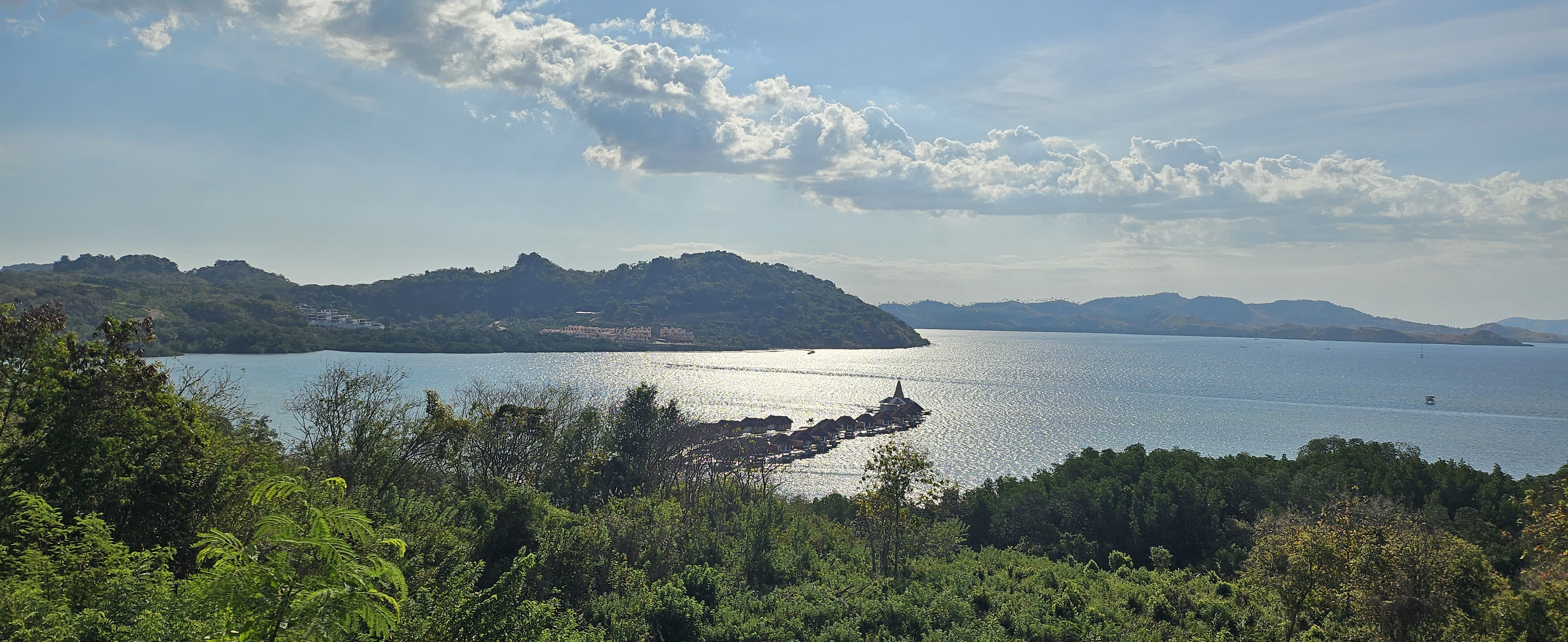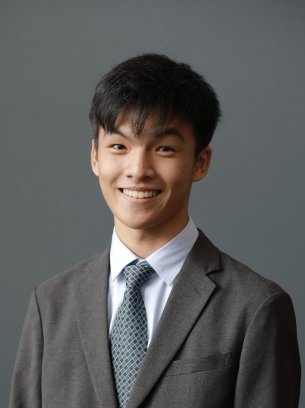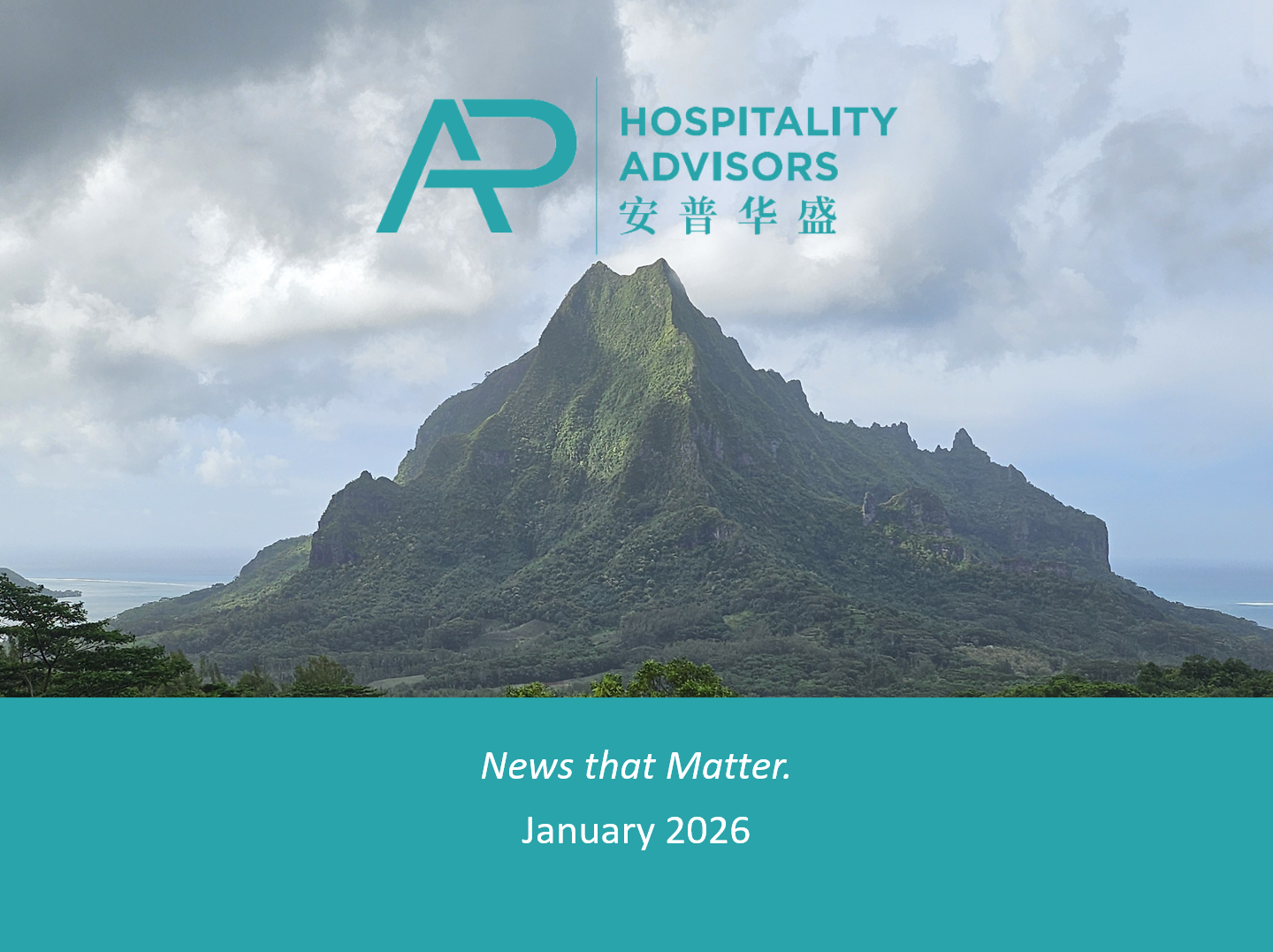AP Hospitality Bulletin Asia Pacific - April 2023
by

Transactions that Matter.
Club Med Kiroro, Japan
- Shanghai Yuyuan Tourist Mart expressed interest in purchasing Kiroro Resort, its land, two hotels, onsen, and golf course through an JPY 11 billion (USD 82.7 million) corporate acquisition of Napier SPC from Fosun International. The buyer will also acquire the local management company, GK Kiroro Management, for another JPY 460 million (USD 3.5 million). The two hotels are both under all-inclusive resort operator Club Med’s management after taking over from previous owners.
- While Kiroro still recovers from the pandemic, the buyer is confident of the long-term outlook with the management of Club Med. Back in 2015, Shanghai Yuyuan Tourist Mart first entered the ski resort sector in Hokkaido when it acquired a resort in Tomamu from Japan-based Hoshino Resort. It is projected that the Kiroro project will reach an occupancy rate of 67% and 30% GOP when stabilized in 2027.
Sofitel Brisbane Central, Australia
- Singapore-based City Developments Limited ("CDL") announced its acquisition of the 416-key Sofitel Brisbane Central from Canada’s Brookfield Asset Management for AUD 178 million (USD 119 million) or USD 286,200 per key. Sitting above the Central Station of Brisbane, the property has the largest meeting facilities in the city with 11 meeting rooms accommodating up to 1,100 people, three food and beverage outlets, an outdoor pool, and a gym.
- This acquisition marks CDL’s entry into Brisbane’s hospitality sector, eyeing the Olympic Games in 2032. "Brisbane’s one of the hotel markets that saw strong recovery in 2022 in Australia, and its RevPAR already exceeded pre-pandemic levels," shared CDL’s chairperson.
Hyatt Regency, Tokyo, Japan
- The 746-key Hyatt Regency Tokyo is sold to KKR and Gaw Capital Partners from Odakyu Electric Railway Company after rumours were first reported back in June last year. Built in 1980, the property is located in a prime location in the heart of Tokyo, surrounded by large-scale class A office buildings and Tokyo Metropolitan Government headquarters.
- While the sale price is not disclosed, the seller expects to record a gain of JPY 50 billion (USD 380.4 million) from the divestment. Starting from 2021, several Japanese railway operators sold their non-core assets, namely hotels, to investors, as hospitality was heavily impacted by COVID-19. These deals include Kintetsu Railway’s divestment of eight hotels in 2021 and Seibu Holding’s hotel portfolio with 15 Prince Hotels in 2022.
Deal Watch
- After Hong Kong resumed normal travel with mainland China, more hotels were put on the market, including the 54-key Twenty One Whitfield in Causeway Bay and the Sheraton and Four Points in Tung Chung with a total of over 1,200 keys. Owned by Chinese developers Shimao and Mingfa Group, the Sheraton and Four Points in Tung Chung are in proximity to transportation hubs such as Hong Kong Airport and the Hong Kong, Zhuhai, and Macau bridge. As the first dual-branded property under Marriott in Hong Kong, the price is likely to be over HKD 6.5 billion (USD 845 million), or HKD 5.3 million (USD 693,000) per key. On the other hand, located in Causeway Bay and overlooking Victoria Harbour, Twenty One Whitfield is for sale at HKD 650 million (USD 84.5 million) or HKD 12 million (USD 1.6 million) per key.
- Opened in October 2019, the 115-key The Standard Maldives is for sale. Featuring seven food and beverage outlets and various facilities, the resort is a 40-minute seaplane flight from Velana Airport or a 25-minute speedboat ride from Dharavandhoo Airport.
- One of only two full beachfront international resorts on the Gold Coast, the 295-key The Sheraton Grand Mirage Resort, is for sale. With a total site area of 34,500 m², the property offers five food and beverage outlets, an outdoor pool, and fitness facilities.

News that Matter.
Macau SAR
- In March, Macau reported the best gaming revenue since the pandemic, after COVID-19 rules were lifted earlier this year. Other key indicators, including visitor arrivals and hotel occupancy rate also recorded a strong growth. The gross gaming revenue (GGR) was recorded at MOP 12.7 billion, showing a 23% month-on-month growth in March and approximately 50% of the monthly figure in 2019.
- Hotels in Macau also benefitted from surging demand starting this January. The year-to-date RevPAR is recorded at MOP 911 in February, doubling from MOP 448 in 2022. To boost the tourism recovery, Macau is extending the buy-one-get-one-free promotion of ferry and bus tickets for overnight visitors from Hong Kong. At the same time, the Macau Government Tourism Office plans to give away 120,000 free flight tickets to travelers in target markets.
Japan
- The Chief Cabinet Secretary of Japan announced that it will lift all entry requirements to enter Japan starting from May 8th and will lower the COVID-19 alert level to Level 5, as same as flu. Starting from April 5th, fully vaccinated travelers from mainland China will no longer need to present pre-arrival tests, although they might be subject to random testing upon arrival.
- Despite the surging demand, Japan still struggles with staff shortages, particularly in airports and hotels. Due to the staff shortage, the average waiting time during the security check can be over an hour at major airports, and some flights are even cancelled. Hotels are also desperate for staff after the reopening. Niseko, the renowned ski destination in Hokkaido, suffered from a serious manpower shortage during peak season.
Vietnam
- In March 2023, Vietnam welcomed 895,425 inbound visitors, and the top source markets were Korea (28%), China (8%), and Thailand (5%). With the gradual recovery of key markets, the figure of monthly visitors reached 63% of pre-COVID levels in 2019. The authorities expect that Vietnam’s tourism sector will return to pre-COVID levels in 2025, and it aims to attract 35 million international visitors by 2030.
- To boost foreign tourist arrivals, the government is seeking to ease visa requirements and prolong the duration of e-visas, which are currently valid for 30 days. On top of the traditional source markets, including ASEAN countries, northeast Asia, Europe, North America, Russia, and Oceania, the authority has its eyes on the emerging markets in India and the Middle East to boost the number of inbound visitors.
Recovery Status in Asia Pacific
- Overall, month-on-month growth slows down, and no sign of strong return driven by Chinese tourists.
- Southeast Asia remains the leader of the recovery, followed by Japan reaching over 50% of pre-pandemic levels.
- Owning to the proximity to mainland China and ease of travel, Macau SAR and Hong Kong SAR saw a boost of visitor arrivals in February.
- Taiwan had a boost as it reopend to FIT travelers from Grater China, including Hong Kong SAR and Macau SAR, in mid-Febuary.

Subscribe to our newsletter
Stay up-to-date with industry news, publications and announcements from our firm.








